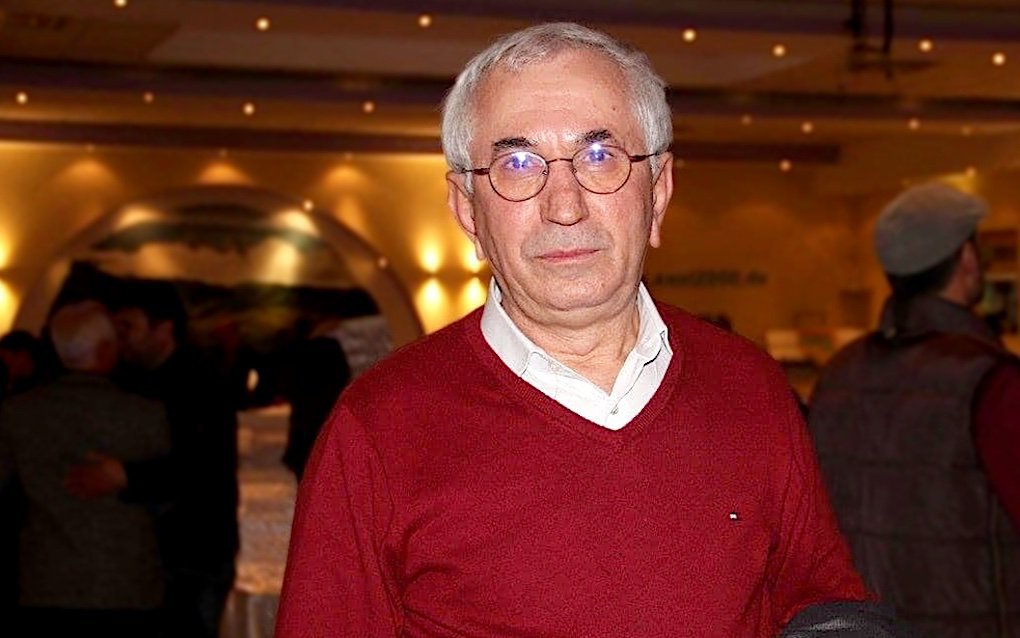Journalist Hüseyin Narlı to be laid to rest in Bochum on January 13

Click to read the article in Turkish / Kurdish
CAN TV program presenter, commentator and journalist Hüseyin Narlı lost his life in Germany's Bochum on January 9, 2022. Narlı will be laid to rest after a funeral ceremony to be held at the Dortmund Alevi Cultural Center (DAKME) tomorrow (January 13) at 10 in the morning.
His family have extended their thanks to "everyone who shared their grief and called" and announced that Narlı's deceased body will be laid to rest in Hauptfriedhof (Main Cemetery), Immanuel-Kant-Str. 52 after the ceremony at the DAKME. They have said that the ones who want to send flowers and wreaths may donate to "HEYVA-SOR" (Kurdish Red Crescent).
Having left Turkey after the military coup on September 12, 1980, Narlı was living in exile. He had been treated for cancer for 3 years.
He was also among the founders of the TV10 and CAN TV. The employees of the broadcasters have expressed their condolences, love and respect for the journalist by sharing messages on social media.
His colleague Şiyar Munzur has written:
A pioneer of the revolutionary struggle in Turkey, with whom I had been working together for 30 years and whose knowledge, leadership and guidance I benefited from moment by moment; one of the founders and program presenters of TV10 and CAN TV in the last 10 years, a guiding spirit, a wise person Hüseyin Narlı... I am so sorry...
CAN TV has also expressed its sadness over the passing of Hüseyin Narlı by sharing a message on its Twitter account.
Ali Mahir, one of his comrades, has underlined that Hüseyin Narlı was "incessantly a part of the freedom struggle," noting that "especially in the 1970s, he first joined the Socialist Youth Union (SGB) and the Socialist Workers' Party of Turkey (TSİP) and then the Communist Party/Union of Turkey (TKP/B) and the Kurdistan Freedom struggle."
About Hüseyin Narlı
Hüseyin Narlı, named Ökkeş Ünlübayır back then, was born in Turkey's southeastern Maraş province. In the early 1970s, when he was a high school student, he joined the revolutionary movement.
At the time when the March 12 martial law was in effect in 1972, he started studying chemistry at the Middle East Technical University (METU) in the capital city of Ankara. In 1974, when he was 19 years old, he served as an executive at the Socialist Workers' Party of Turkey (TSİP). He continued with his higher education at the Department of Electronic Engineering at Karadeniz Technical University in the Black Sea region in 1975.
In 1977, when Turkey came under a 'severe fascist attack', he became one of the co-founders of the Socialist Youth Union (SGB) and served as its chair. After the military coup on September 12, 1980, he left Turkey and went to Syria. After working in Syria until 1983, he went to Europe. He was a member of the Central Committee of the Communist Party of Turkey (TKP).
In the early 1990s, he was among the founders of the Zülfikar magazine, a leading publication of the "Alevi revival" or "Alevi enlightenment", which roughly refers to the Alevi politicization process in the late 1980s. He was also at the forefront of the European Alevi Movement.
Offering constant technical support to Kurdish TV broadcasting in Europe, Narlı devoted the last 30 years of his life to the organization, institutionalization and broadcasting activities of Alevi community.
He is taken as an example by many as a modern revolutionary intellectual thanks to his contribution to the Alevi revival and struggle, his ties with the socialist struggle that had never been broken and his incessant international solidarity with the Kurdish Freedom struggle. (AEK/SD)



